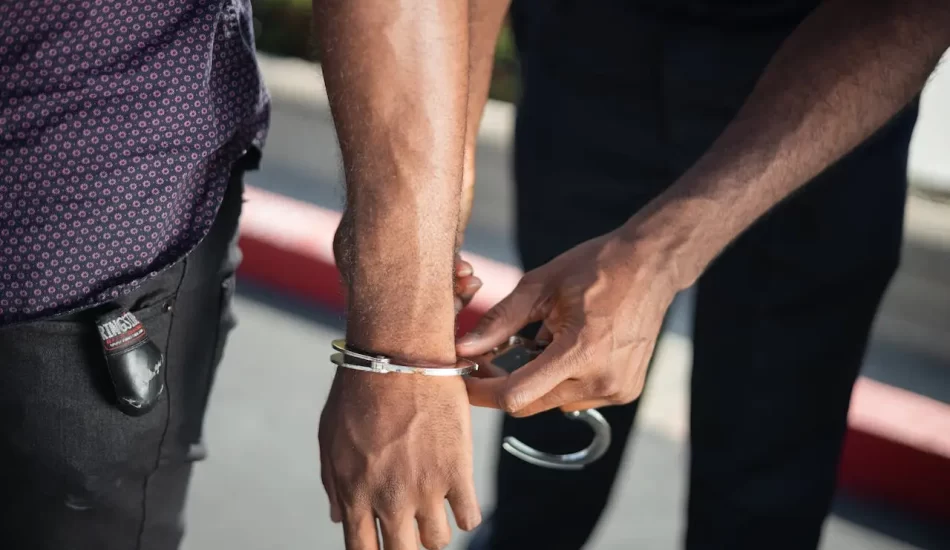Protecting Your Mental And Emotional Health: Combatting Depression After DUI Charges

Facing a DUI conviction with the looming possibility of arrest ensues a tempest of emotions within, threatening to engulf even the strongest of spirits. It begins with a numbing shock, an almost surreal disbelief at the gravity of the situation. Denial soon follows – a defense mechanism against the harsh reality of a DUI arrest. Anger, a fiery force, simmers beneath the surface, seeking an outlet for the overwhelming frustration.
As days pass, bargaining takes root, a silent plea for a different outcome, for a chance to turn back time. Rationalization becomes a companion, a means to regain a semblance of control. But as reality settles in, despair and depression may descend, casting a long, daunting shadow on your well-being. In this darkness, it is crucial to recognize the signs, develop coping mechanisms, and seek solace and support.
Those who attempt to fight this battle alone find themselves drowning in despair and depression. One study highlights that long-drawn legal battles are directly linked with depression and pessimism. Seeking professional guidance is an act of courage and self-compassion, and finding the right attorney who understands the weight of your emotions can make all the difference.
Depression & DUI: Understanding the Triggers
The link between depression and DUI charges is multifaceted. A DUI arrest can be a traumatic experience, particularly for first-time offenders with no prior criminal history. The sudden collision with the legal system, the looming consequences, and the shift from a law-abiding citizen to an accused individual can lead to profound feelings of shame, isolation, and self-blame.
Additionally, the financial strain, legal uncertainties, loss of control due to a suspended license, and the social stigma associated with a DUI conviction can exacerbate emotional distress, potentially culminating in depression.
The Emotional Turmoil of First-Time Offenders
A DUI arrest is a seismic emotional shock for those with an unblemished record. Suddenly thrust into the legal system, individuals with no prior criminal history grapple with fear, shame, and a profound sense of powerlessness. The weight of potential consequences, including jail time, license suspension, and financial strain, bears down heavily.
The ramifications of a DUI extend beyond the legal sphere, infiltrating personal and professional realms. Anxiety over potential job loss, strained relationships, and even custody battles can intensify the mental and emotional stress. First-time DUI offenders grapple with an abrupt loss of identity, plunging into feelings of shame, isolation, and even self-blame.
Financial Stress: The Weight of the Burden
A DUI conviction brings with it an unexpected and substantial financial burden. The court costs, ranging from $4,000 to $17,000 in the United States, encompassing fines, attorney fees, and steep increases in insurance rates. Even for those in comfortable financial positions, this unanticipated expense can take a toll on their mental health.
However, it can be downright overwhelming for those on a tight budget. Many individuals charged with DUIs report that the financial strain is one of the most formidable aspects of the ordeal.
Legal Uncertainty: Navigating a Complex System
The legal proceedings following a DUI arrest can be labyrinthine and bewildering, especially for DUI offenders unfamiliar with the legal system. Uncertainties about the potential outcomes, the intricacies of the legal process, and the implications of various decisions can intensify stress levels. This pervasive uncertainty can gnaw at one’s peace of mind, compounding the emotional toll of the situation.
Loss of Control: A Profound Sense of Helplessness
The suspension of a driver’s license, a common consequence of a DUI conviction, is not just a logistical inconvenience—it represents a fundamental loss of autonomy. Suddenly dependent on alternative means of transportation, DUI offenders may feel trapped in a situation beyond their control. This loss of independence, symbolically and practically, exerts a heavy toll on one’s mental health, permeating various aspects of daily life.
Social Stigma & Criticism: Harsh External Judgments
Beyond the legal ramifications, a DUI conviction’s social repercussions can profoundly damage one’s mental health. Navigating judgment from friends, family, colleagues, and society at large can be emotionally draining. The stigma associated with a DUI can lead to feelings of embarrassment and isolation. Overcoming the fear of social censure is a critical step toward reclaiming one’s emotional well-being in the aftermath of a DUI arrest.

Combatting Depression with Effective Coping Mechanisms
Combatting depression in the aftermath of a DUI arrest demands a multifaceted approach. By leaning on your support system, prioritizing physical health, staying informed, abstaining from alcohol, seeking empathetic legal representation, and exploring therapeutic outlets, you equip yourself to navigate this challenging period with resilience.
Remember, seeking professional help for your emotional well-being and legal defense is an act of strength, not weakness. These tips will help you weather the storm and enable clear-headed decision-making regarding the legal proceedings ahead:
Embrace Your Support System
Amid adversity, avoid the temptation to isolate yourself. Allow your friends and family to offer their support. Engaging with loved ones provides a vital emotional anchor, significantly reducing feelings of isolation and despair. Regular, open conversations can help alleviate the emotional burden.
Prioritize Physical Health
Regular exercise is a formidable tool against depression. Physical activity triggers the release of endorphins, the body’s natural mood lifters. Whether through jogging, yoga, or any enjoyable activity, consistent exercise is pivotal in enhancing your overall mental well-being. Instead of pondering over losing your driving privileges, reclaim your independence by embarking on rewarding hikes and biking trails.
Educate Yourself About DUI Charges
Empower yourself with knowledge about the specific DUI conviction you’re facing. Understanding the legal processes and potential consequences can demystify the situation, reducing stress levels. This knowledge arms you with the information needed to make informed decisions regarding your defense strategy. Educating yourself will help you manage expectations and stop catastrophizing – constantly worrying with negative thoughts regarding your DUI arrest.
Avoid Alcohol Consumption
Steer clear of the temptation to self-medicate with alcohol. While it may offer a momentary reprieve, it ultimately worsens feelings of despair and sadness. Alcohol acts as a natural depressant, hindering your emotional state. Instead, seek healthier, constructive ways to cope with your emotions.
Seek Empathetic Legal Support
Engage the services of a seasoned DUI attorney who comprehends the legal intricacies and acknowledges the emotional challenges you’re facing. Effective communication, timely updates, and a collaborative approach can provide a sense of security and alleviate anxiety. A dedicated attorney ensures you’re well-informed, actively involved, and equipped to face your legal battle.
Explore Therapeutic Outlets
Consider therapeutic options like counseling or support groups. Professional guidance can provide a safe space to express negative emotions and develop effective coping strategies. Therapists have extensive training in navigating the complexities of emotional turmoil, offering valuable insights and tools to regain stability.
Combatting depression in the aftermath of a DUI charge involves embracing positivity, practicing mindfulness, and seeking legal counsel to alleviate anxiety. At the Law Office of Louis Goodman, we recognize the profound impact DUI charges can have on mental health, and we proactively work to minimize emotional turmoil by providing empathetic support and guidance throughout the legal process.

Final Thoughts
At the Law Office of Louis Goodman, we infuse legal help with empathy that uplifts our clients, empowering them to combat emotional stress. By leveraging his extensive experience as a former Deputy District Attorney, Goodman enables clients to navigate the legal system while minimizing their need for court appearances. His empathetic approach to legal representation stems from over 30 years of experience, during which he witnessed the profound impact of legal decisions on individuals, families, and businesses.
Beyond the external threat of legal consequences, individuals grapple with fear and a sense of powerlessness. Goodman’s philosophy centers on second chances and empowering clients to transform their lives. He guides clients through the process, demonstrating that an arrest doesn’t signify the end but rather a potential beginning of a more positive and productive chapter.
His transparent fee structure and commitment to client understanding provide much-needed peace of mind. After working with Goodman, clients often find relief from their legal burdens, feeling in control of their lives and ready to embark on a happier, more productive path forward. Book a free consultation with Louis J. Goodman to find clarity and devise a roadmap to mitigate and end this stressful predicament.
Request A Free Case Evaluation
Fields marked with an * are required
"*" indicates required fields



